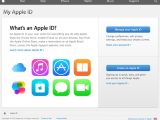As you probably already know, hundreds of apps infected with the XcodeGhost compiler malware were accepted into Apple's iOS App Store and were consequently installed on a large number of iOS devices.
Today, Apple has published an advisory on their support website directed at Chinese customers, saying that they have no information that the users who had such apps installed on their iOS devices had any of their private data or passwords stolen and sent to third parties.
Fact is that, even though Apple suggests that your data is in no danger even if you had the XcodeGhost malware on your iOS device, they have still removed the infected apps from the App Store, and this indicates that the probability of your personal data being compromised while the malicious apps ran on your device still exists.
What can you do to prevent unauthorized access to any of your data, just in case some of your accounts and passwords have been compromised?
The three steps needed to make sure that your data is safe
Step 1 - Remove any of the apps listed by Qihoo 360 on their blog post to make sure that the malware is not active anywhere on your iOS device.
Step 2 - You should change the passwords of the accounts you used to log into the applications you've just deleted. We know this might seem a drastic measure, but it is better to be safe than sorry.
Step 3 - Change your iCloud password by going to the My Apple ID website and follow the steps detailed by Apple on their support website to help you change your Apple ID password.
If you followed the three steps described above, your data should be safe even if the XcodeGhost malware managed to somehow send any of your personal information, despite Apple's statement that it wouldn't be able to do so.

 14 DAY TRIAL //
14 DAY TRIAL // 
